8 Best Linux Books Worth Checking Out (Spring 2023)
Have you been looking for the best way to learn Linux skills and languages? Or are you a Linux user interested in enhancing your knowledge of the Linux operating system? Then, you are in the right place.
We have carefully researched and curated the best Linux books that significantly benefit beginners, Intermediates, and advanced users. These books come highly recommended by experts, and they cover a wide range of topics and subjects on Linux, including system administration, shell scripts, Kali Linux, Ubuntu Linux, etc. Our Editor’s Choice, the 10th edition of the Linus Bible, is the best on our list because it contains detailed and recent information on Linux, making it an ideal choice for beginners, intermediates, and advanced users. Read on to find out more about other great books on Linux.
| Name | Nomination | Overall rating |
|
The Linux Bible is our Editor’s Choice because it comes highly recommended as the ultimate Linux user guide for all levels of expertise |
Editor’s Choice | 9.9 |
|
2. The Linux Command Line, 2nd Edition: A Complete Introduction If you are looking for a Linux book that contains everything you need to know about the Linux command line, you should consider this one |
Runner-up | 9.6 |
|
3. How Linux Works, 3rd Edition: What Every Superuser Should Know This thorough Linux book details the Linux operating system and how it works, and yet aims to simplify Linux entirely and is ideal for beginners |
Best Comprehensive Linus Book | 9.4 |
|
4. Linux for Beginners: An Introduction to the Linux Operating System and Command Line If you are just starting Linux and you want to learn the basics of Linux without any issues, this book is an ideal choice |
Best for Beginners | 9.2 |
|
5. UNIX and Linux System Administration Handbook Experts who desire to learn more about the UNIX and Lunix operating systems would love this book, packed with sources that would help develop their skills |
Best for Experts | 9.0 |
|
6. Linux Command Line and Shell Scripting Bible If you already know the fundamentals of Linux and want to upgrade your Linux skills and knowledge, this book is the perfect choice for you |
Best For Intermediates | 8.8 |
|
7. Kali Linux Penetration Testing Bible New and advanced pen-testers would love this book as it details everything about the Kali Linux system and is considered one of the best books on Kali Linux |
Best Kali Linux Book | 8.7 |
|
8. Ubuntu Linux Unleashed 2021 Edition This revised and updated Ubuntu Linux Unleashed book features thorough guide on the Ubuntu 20.04 LTS, and much more |
Best Ubuntu Linux Book | 8.5 |
Top 8 Linux Books Review
Features:
- Author: Christopher Negus
- Level of proficiency: Beginner/ Intermediate/ Advanced
- of pages: 928
- Edition: 10th edition (June 10, 2020)
- Publisher: Wiley
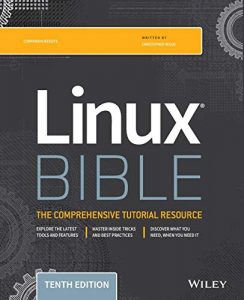
The Linux Bible is our Editor’s Choice because it comes highly recommended as the ultimate Linux user guide for beginners, intermediates, and experts. It doesn’t matter if you are just starting on Linux or an expert looking for how to navigate recent changes; the 10th edition of the Linux Bible is an ideal choice.
The 10th edition of the Linux Bible is an upgrade of its former edition. This new edition contains detailed explanations of the most recent versions of Fedora 30, Red Hat Enterprise Linux (RHEL 8), and Ubuntu 18.04 LTS. It also includes adequate information on OpenShift, cloud computing, Kubernetes, and Ansible automation. This 10th edition of the Linux bible by Wiley focuses on RHEL 8. Hence, it contains detailed techniques to manage users, storage, and security. In this edition, Wiley also emphasized straightforward administrative methods using Cockpit. In summary, this edition of the Linux bible achieved its primary aim of demystifying Linux for beginners and experts alike.
What we liked
- Ideal for beginners and experts.
- The adoption of simple-to-read-and-understand grammar throughout the book.
- Detailed and accurate information on Linux
What could be better
- Not enough information on Ubuntu.
Features:
- Author: Brian Ward
- Level of proficiency: Beginner
- of pages: 464
- Edition: 3rd edition (April 19, 2021)
- Publisher: No Starch Press
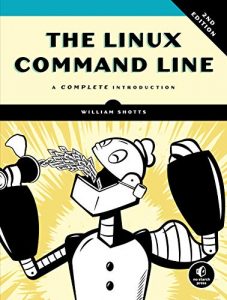
This book is nominated as the best comprehensive Linux book because it is a thorough and updated book that contains detailed information on how Linux works.
This book by Brian Ward aims to simplify Linux entirely and is ideal for beginners. It includes a comprehensive explanation of how the system works, the function of the kernel, and how networking works. It is one of the best books for learning Linux. This third edition has been updated and modified, and new chapters have been added. Unlike the previous edition, this edition includes an additional chapter on virtualization.
Additionally, it includes an extensive explanation and discussion on systemd, Logical Volume Manager (LVM), IPv6, and journald logging system. This book will teach you how to write practical shell scripts, how development tools function, and how interfaces, networking, servers and firewalls work. At the end of this book, you will fully understand how Linux works.
What we liked:
- It provided accurate answers to numerous Linux questions.
- It offered an extensive explanation of and discussion on the Linus operating system.
- Ideal for beginners who want to understand how Linux works.
What could be better:
- Not recommended for experts who desire advanced information.
Features:
- Author: Jason Cannon
- Level of proficiency: Beginner
- of pages: 202
- Edition: 1st edition (January 2, 2014)
- Publisher: CreateSpace Independent Publishing Platform
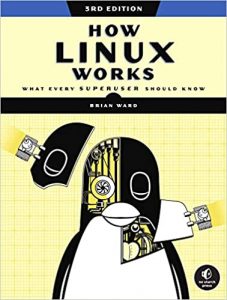
This book is nominated as the best Linus book for beginners. If you are a beginner on Linux, we recommend this book as it is an ideal foundation for becoming an expert on Linux.
Unlike many books on Linux, you don’t need to have prior knowledge of Linux before you can understand this book, making it one of the best Linux books for beginners. We like that this book provides a step-by-step guide on how Linux works using a systematic and logical approach. This means you will fully understand each chapter in the book’s discussion without any issues. In this book, you will learn how to select the suitable Linux distribution, access a Linux server, use SSH and what it is, various and reliable methods to locate directories and files, customize shell prompts, and many more.
What we liked:
- A thorough approach to collating the right information for beginners.
- Contains discussion on the core sections of the Linux platform.
- We like how it walks readers through how the Linux platform functions.
What could be better:
- Could have been more detailed.
Features:
- Author: Jason Cannon
- Level of proficiency: Beginner
- of pages: 202
- Edition: 1st edition (January 2, 2014)
- Publisher: CreateSpace Independent Publishing Platform
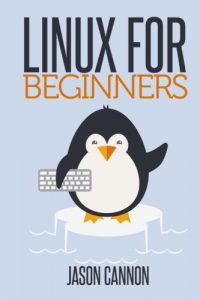
This book is nominated as the best Linus book for beginners. If you are a beginner on Linux, we recommend this book as it is an ideal foundation for becoming an expert on Linux.
Unlike many books on Linux, you don’t need to have prior knowledge of Linux before you can understand this book, making it one of the best Linux books for beginners. We like that this book provides a step-by-step guide on how Linux works using a systematic and logical approach. This means you will fully understand each chapter in the book’s discussion without any issues. In this book, you will learn how to select the suitable Linux distribution, access a Linux server, use SSH and what it is, various and reliable methods to locate directories and files, customize shell prompts, and many more.
What we liked:
- A thorough approach to collating the right information for beginners.
- Contains discussion on the core sections of the Linux platform.
- We like how it walks readers through how the Linux platform functions.
What could be better:
- Could have been more detailed.
Features:
- Author: Evi Nemeth, Garth Snyder, Trent R. Hein, Ben Whaley, Dan Mackin
- Level of proficiency: Beginner/ Intermediate/ Advanced
- of pages: 1232
- Edition: 5th edition (August 8, 2017)
- Publisher: Addison-Wesley Professional
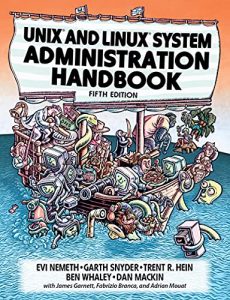
The fifth edition of the UNIX and Linux System Administration Handbook is the best Linux book for Experts on our list because it contains comprehensive information on the UNIX and Linux operating system. It is a thorough guide that helps readers to know how to install, maintain, and configure any Linux or UNIX system. It is considered one of the best programming books, focusing on helping experts improve their knowledge of the UNIX and Linux systems.
This fifth edition has been modified and updated to accommodate recent cloud environments and Linux distributions. You will particularly love this book if you are a network or system administrator. It details current information on continuous delivery, cloud deployments, Docker, etc. This book features ideal practices that can be adopted for all system administration aspects. This includes network design, storage management, web scale-out, network administration, web hosting, IT service organizations’ management, virtualization, and many more
What we liked:
- We like that this book accurately and extensively discussed system and network administration.
- The book is practical and significantly engaging.
- It’s handy and functions well as a reference book.
What could be better:
- It doesn’t have enough information on some subjects.
Features:
- Author: Christine Bresnahan, Richard Blum
- Level of proficiency: Beginner/ Intermediate
- of pages: 832
- Edition: 4th edition (January 13, 2021)
- Publisher: Wiley
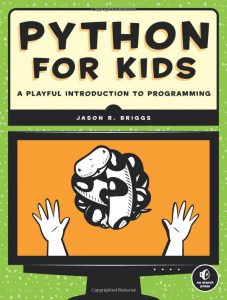
The fourth edition of the Linux Command Line and Shell Scripting Bible is the best Linux book for Intermediates as it serves as the perfect guide for people who desire to advance your knowledge of the Linux command line. This book contains practical tips and various reliable strategies that will assist you in becoming an expert on Linux shell scripts.
This fourth edition has been adequately revised and thoroughly updated. Unlike its third edition, it contains recent and new information on various topics, including how to understand the shell, write straightforward script utilities, create shell scripts, and produce email, web, and database scripts. The authors used an error-free and approachable style to detail how to use and manage shell scripts and navigate the Linux environment conveniently and easily. The book also contained various practical script examples to help readers understand what they’re reading. After reading this book, you will have succeeded in advancing your knowledge of the Linux command line and shell scripts.
What we liked:
- It’s perfect for intermediate system administrators who want to know how to write and use shell scripts.
- We like that it also serves as an accessible reference book for procedures and commands.
- Contains detailed information on content delivery and cloud-based networks
What could be better:
- While it provided enough information on bash, it doesn’t offer information on tcsh, another shell that numerous programmers use.
Features:
- Author: Gus Khawaja
- Level of proficiency: Beginner/ Intermediate
- of pages: 512
- Edition: 1st edition (May 14, 2021)
- Publisher: Wiley
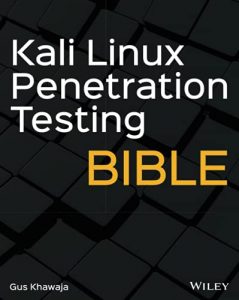
The Kali Linux Penetration Testing Bible is the best Kali Linux book on our list. This book is the ideal methodology and handy guide for pen-testing with kali Linux. It’s widely considered one of the best books on Kali Linux. If you are a cybersecurity professional, you would love this book. This is because it contains everything about the techniques and tools hackers can use to access your systems, which will aid you in setting effective and reliable defenses for your assets.
This book is packed with all you need to know about Kali Linux. In this book, you will learn how to build an advanced dockerized environment, bash language fundamentals, and use various methods such as Network Scan and OSINT to discover system vulnerabilities. You will also learn how to discover modern subjects such as lateral movement, buffer overflow, and privilege escalation. This book also contains detailed information on applying efficient and practical pen-testing workflows.
What we liked:
- Useful for new and experienced pen-tester.
- Ideal book to learn about the kali system.
- The book is easy to understand and engaging for beginners and Intermediates alike.
What could be better:
- Not recommended for people who have zero knowledge of the kali Linux platform.
Features:
- Author: Matthew Helmke
- Level of proficiency: Intermediate/ Advanced
- of pages: 752
- Edition: 14th edition (August 14, 2020)
- Publisher: Addison-Wesley Professional
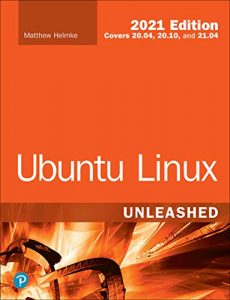
The Ubuntu Linux Unleashed 2021 Edition is nominated as the best Ubuntu Linux book because it is packed with advanced and spectacular information on making the most of the Ubuntu Linux system. It covers everything you need to know about the Ubuntu Linux system.
Unlike the previous edition, this edition has been revised and updated to include detailed information about the recent Ubuntu 20.04 LTS. This includes how to install and configure the Ubuntu 20.04 LTS. This book also contains information about its development, productivity, system administration, virtualization, networking, command-line usage, server operations, etc. You will also learn how to manage Linux users, services, and software packages. This book is one of the best books on Ubuntu Linux that will offer you value for your money.
What we liked:
- It’s an ideal book for newbies and Intermediates to learn about and improve their knowledge of the Ubuntu Linux system.
- Well-written and offers a better insight on the Ubuntu Linux system.
What could be better:
- No mention of the package of directories and files to download.
Buying Guide
In this section, we will provide a comprehensive buying guide on purchasing a good Linux book to aid your career. If you don’t want to go for the highlighted books or need other books on Linux, you must follow the guide below. Let’s get into it.
What’s Your Level of Proficiency?
Like with the best Python books, first thing to consider before purchasing a Linux book is your level of proficiency. This is vital because your level of proficiency will inform your decision on the type of Linux books you should buy. Let’s look at the three types of proficiency levels to help you know where you fit.
Beginner
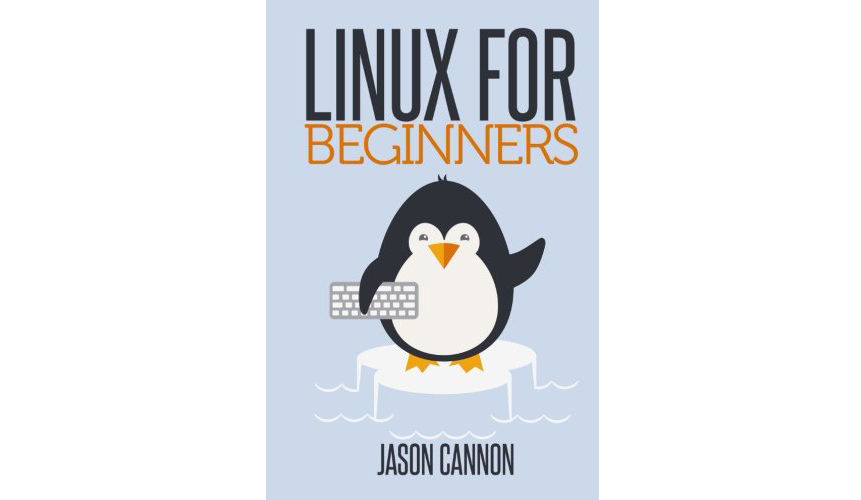
You are a beginner if you have little to no knowledge about the Linux platform. As a beginner, you should buy Linux books that are written for Intermediates and advanced users. This is because they will contain Linux terminologies you are not used to. Additionally, the style of writing the author(s) will adopt in an advanced or intermediate Linux book will confuse a beginner or overwhelm them. If you are starting on Linux, you should focus on books that are centered around the fundamentals of Linux and how it works. Some ideal examples of Linux books for beginners are How Linux Works, 3rd Edition: What Every Superuser Should Know and Linux For Beginners: An Introduction to The Linux Operating System And Command Line. Linux books like these two will help you build the perfect foundation in your journey to becoming an advanced Linux user.
Intermediate
An intermediate Linux user has gathered enough knowledge about the Linux platform. An intermediate user understands the fundamentals of Linux and can comfortably use it to execute everyday tasks with little to no issues. If you are an intermediate Linux user and you wish to improve your knowledge of the platform, you should either go for Linux books that are specifically written for Intermediate Linux users or books that address beginners, intermediates, and advanced. It would be best if you did not go for Linux books explicitly written for advanced users as intermediate Linux users. You might not fully grasp the book’s concept and overall message. There are several intermediate Linux books that you will find incredibly useful. One of them is the Linux Command Line And Shell Scripting Bible.
Advanced
An advanced Linux user has adequate knowledge of the Linux platform and how it works. An advanced user is also fluent in the command line and shell scripts. So, if you fall under this category, buying Linux books for advanced users or books written for beginners, intermediates, and advanced users is advisable. Some examples include UNIX and Linux System Administration Handbook and Ubuntu Linux Unleashed 2021 Edition.
What Are Your Goals?
Before buying a Linux book, you must set a goal and be sure of what you want to achieve. Having a clear goal before getting a Linux book will significantly help in choosing the right one. Linux books cover a wide range of topics and areas. For example, if you have a goal to get better at system administration or shell scripts, then it will be easy to navigate through Linux books written in these niches to pick the best one that will aid you in getting better at Linux.
Is the Book Up to Date?
Another crucial factor you should consider when buying a Linux book is ensuring it is up to date. This is essential because newer updates and releases are being added to the Linux platform from time to time. Like the best C# books, a revised and updated Linux book would also contain recent information that will help you in your Linux career. Buying an outdated Linux book will restrict you to only previous findings with limited information about the topic. Before purchasing any Linux book, check for the book’s latest edition. The more recent the edition of your Linux book, the more updated, revised, and comprehensive it will be. Hence, we advise you to get an up-to-date edition of any Linux book you intend to buy.
Who’s the Author?
Many users buy Linux books without checking the credibility of the authors. Ensuring that an author(s) is credible will ensure you get the most accurate information about whatever was addressed in the book. For example, before the information in the best programming books can be used, the authors must be reliable. One of the ways to ensure an author’s credibility is to check for their previous works and reviews. Doing this will assure you that the authors are knowledgeable about the topic they wrote about.
FAQs
Can I Learn Linux by Myself?
Yes, you can learn Linux by yourself if you have the right resources. As a general rule of thumb, the more you use technology, the easier it will be for you to grasp the fundamentals of Linux. However, while you can learn basic Linux commands in a few days, you will probably not be used to using these commands until after a few weeks.
Where Should I Start Learning About Linux If I am Not a Programmer?
You don’t need to understand programming before you can start to learn the Linux platform. This is because learning Linux basics doesn’t require programming. There are several fundamental books you can read to learn about Linux.
Our Verdict
The Linux Bible, our Editor’s Choice, is the best Linux book on our list. This book is thorough and packed with essential fundamental and advanced information for all Linux users.
Then, The Linux Command Line, 2nd Edition: A Complete Introduction is our Runner-up, and it covers all there is to know about the Linux command line.
Finally, How Linux Works, 3rd Edition: What Every Superuser Should Know is nominated as our Best Comprehensive Linux Book. With a rating of 9.4, it’s loaded with reliable sources that can help to advance your Linux career.
This article has highlighted the best Linux books that will help you advance your knowledge about the Linux platform. These books contain updated and revised information on various aspects of Linux, such as RHEL 8, cloud computing, system administration, shell scripts, etc. We hope that you’ll find them useful!
References:
https://www.geeksforgeeks.org/chaining-commands-in-linux/amp/
https://www.investopedia.com/terms/c/cloud-computing.asp
https://opensource.com/resources/virtualization
https://www.techopedia.com/definition/22441/system-administration
